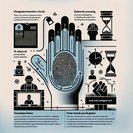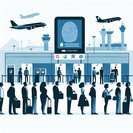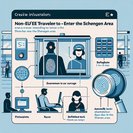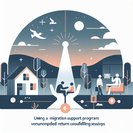
Switzerland will align with its Schengen partners and raise the fee for the European Travel Information and Authorisation System (ETIAS) from €7 to €20 on 1 January 2026. The decision, announced on 22 November 2025, brings Switzerland into step with France, Italy, Spain, Greece, Belgium and several other EU member states that have endorsed the same increase.
ETIAS is the electronic travel authorisation that visa-exempt nationals—including visitors from the United States, United Kingdom, Canada and Japan—must obtain before entering the Schengen Area for short stays. The Swiss State Secretariat for Migration (SEM) says the additional revenue will fund cybersecurity upgrades, new data-sharing interfaces with Europol and Schengen Information System enhancements designed to spot identity fraud more quickly at the border.
![Switzerland and Schengen Partners to Raise ETIAS Fee to €20 from 2026]()
For travellers, the practical impact is modest: an ETIAS approval remains valid for three years (or until passport expiry), so the effective cost per trip remains low. Nonetheless, mobility managers should factor the higher upfront cost into travel budgets for multi-country assignments that start in 2026 or later. Companies that bulk-pay ETIAS fees for project staff could see administrative costs triple, though some may pass the expense on to employees or clients.
Border officials at Zurich, Geneva and Basel airports expect passenger flows to improve once ETIAS is fully integrated with the new Entry/Exit System (EES) biometric kiosks. A single QR code will eventually confirm both ETIAS approval and EES enrolment. Travel industry associations such as Switzerland Tourism have backed the fee rise, arguing that reliable funding for border technology is preferable to sudden Schengen-wide surcharges or ad-hoc security levies.
Because the fee hike applies across the entire Schengen zone, Switzerland’s competitiveness as a destination should not suffer. However, companies that rely on frequent short-term visits by U.S. or British engineers may wish to bundle trips so that a single ETIAS authorisation covers multiple missions, thereby diluting the cost. The SEM has pledged to publish multilingual guidance for employers before the end of Q2 2026.
ETIAS is the electronic travel authorisation that visa-exempt nationals—including visitors from the United States, United Kingdom, Canada and Japan—must obtain before entering the Schengen Area for short stays. The Swiss State Secretariat for Migration (SEM) says the additional revenue will fund cybersecurity upgrades, new data-sharing interfaces with Europol and Schengen Information System enhancements designed to spot identity fraud more quickly at the border.

For travellers, the practical impact is modest: an ETIAS approval remains valid for three years (or until passport expiry), so the effective cost per trip remains low. Nonetheless, mobility managers should factor the higher upfront cost into travel budgets for multi-country assignments that start in 2026 or later. Companies that bulk-pay ETIAS fees for project staff could see administrative costs triple, though some may pass the expense on to employees or clients.
Border officials at Zurich, Geneva and Basel airports expect passenger flows to improve once ETIAS is fully integrated with the new Entry/Exit System (EES) biometric kiosks. A single QR code will eventually confirm both ETIAS approval and EES enrolment. Travel industry associations such as Switzerland Tourism have backed the fee rise, arguing that reliable funding for border technology is preferable to sudden Schengen-wide surcharges or ad-hoc security levies.
Because the fee hike applies across the entire Schengen zone, Switzerland’s competitiveness as a destination should not suffer. However, companies that rely on frequent short-term visits by U.S. or British engineers may wish to bundle trips so that a single ETIAS authorisation covers multiple missions, thereby diluting the cost. The SEM has pledged to publish multilingual guidance for employers before the end of Q2 2026.








